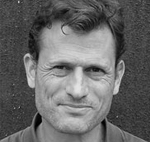[vc_row][vc_column width=”1/1″][vc_single_image image=”3585″ border_color=”grey” img_link_target=”_self” img_size=”full”][/vc_column][/vc_row][vc_row][vc_column width=”2/3″][vc_column_text]
Promise Project
Promoting Youth Involvement and Social Engagement (PROMISE) is a major EU funded research project which aims to explore young people’s role in shaping society; past, present and future.
The project brings together twelve collaborating centres in Estonia, Finland, Germany, Italy, Portugal, Slovakia, Spain, the Russian Federation, Croatia and the UK.
This project is funded under the European Commission’s Horizon 2020 Research and Innovation Programme, Grant Agreement no. 693221. It will run for three years from May 2016 to April 2019.
[/vc_column_text][vc_accordion collapsible=”yes” active_tab=”false”][vc_accordion_tab title=”Project Aims”][vc_column_text]
Young people are often at the forefront of social, cultural and political change, often driven by their energy and creativity, but also by their frustration at the challenges they face. PROMISE aims to investigate young people’s responses to these challenges, and seeks ways to transform this into positive social achievement. Through an understanding of the experiences, values and attitudes of European youth PROMISE will get to the heart of barriers and opportunities for social engagement.
PROMISE focuses specifically on young people ‘in conflict’ with authority, and usually, therefore, in conflict with social norms. We contend that these ‘conflicted youth’ are seen to be the most problematic in terms of positive social engagement, often triggering negative and punitive responses from authority, in turn furthering marginalisation and stigmatisation. The negative effects of stigma and marginalisation reduce opportunities for young people to engage positively in social action, and as a result, much of the creativity, innovation and energy within these groups is directed away from positive social change. PROMISE believes that conflicted youth present significant opportunities for change and should therefore be the prime focus of policy makers and practitioners.
[/vc_column_text][/vc_accordion_tab][vc_accordion_tab title=”Approach”][vc_column_text]Using mixed qualitative and ethnographic methods, PROMISE will explain in detail alternative ways for young people to innovate and participate in society. Besides, PROMISE will engage young people throughout all the stages of the research, with a variety of participatory tools such as photo elicitation, peer research and an intensive use of social networks, providing a space for them to set the agenda, document their situations and articulate their needs. The project also gathers quantitative data to explore differences in youth attitudes and behaviour across Europe.[/vc_column_text][/vc_accordion_tab][/vc_accordion][vc_column_text]
Spanish Team
PROMISE involves teams of researchers from 12 different organisations across Europe. The project is being coordinated at The University of Manchester. The Spanish Team members are:[/vc_column_text][vc_accordion collapsible=”yes” active_tab=”false”][vc_accordion_tab title=”Zyab Ibañez”][vc_column_text] Zyab Ibañez is a Postdoctoral Researcher at the Institute of Government and Public Policies (IGOP) of the Universitat Autònoma Barcelona. He holds a PhD in Political and Social Sciences from the European University Institute, Florence 2007, and an MSc in Environmental Assessment from the London School of Economics. His research combines cross-national institutional analyses and organizational case-studies to explore how different institutional regimes shape the design and implementation of public policies in the areas of employment, working-time and migration. As a researcher, he has been involved in several EU and National funded projects, such as RECWOWE and Mobile Identities. Currently he is part of the IGOP team undertaking the project: Promoting Youth Involvement and Social Engagement (PROMISE), a major EU funded research project, under the European Commission’s Horizon 2020 Research and Innovation Programme, running from May 2016 to April 2019.[/vc_column_text][/vc_accordion_tab][vc_accordion_tab title=”Margarita León”][vc_column_text]
Zyab Ibañez is a Postdoctoral Researcher at the Institute of Government and Public Policies (IGOP) of the Universitat Autònoma Barcelona. He holds a PhD in Political and Social Sciences from the European University Institute, Florence 2007, and an MSc in Environmental Assessment from the London School of Economics. His research combines cross-national institutional analyses and organizational case-studies to explore how different institutional regimes shape the design and implementation of public policies in the areas of employment, working-time and migration. As a researcher, he has been involved in several EU and National funded projects, such as RECWOWE and Mobile Identities. Currently he is part of the IGOP team undertaking the project: Promoting Youth Involvement and Social Engagement (PROMISE), a major EU funded research project, under the European Commission’s Horizon 2020 Research and Innovation Programme, running from May 2016 to April 2019.[/vc_column_text][/vc_accordion_tab][vc_accordion_tab title=”Margarita León”][vc_column_text] Margarita León is Professor of political science at the Autonomous University of Barcelona. Of the 2010 to 2015 He was a researcher in the Ramón y Cajal Institute of Government and public policy (IGOP) of this University. He has been Professor of comparative public policy at the University of Kent (2004-2010) and Marie Curie researcher at the European University Institute of Florence. He received his Ph.d. at the London School of Economics with a grant from the V framework programme of the European. Account in addition, with a master’s degree in Sociological Research by the University of Essex (1995) and a Bachelor’s degree in Sociology from the University of Alicante (1994). He has published articles in numerous journals of international impact ’. Is co-editor along with Ana M. Guillén of the book The Spanish Welfare State in European Context (Ashgate, 2011) and editor of The Transformation of Care in European Societies (Palgrave, 2014). His main areas of research are comparative public policy and the reform of the ’ welfare State. He is a member of the Executive Committee of the European social Policy Network (ESPAnet) and of the Spanish network of Social policy (REPS).
Margarita León is Professor of political science at the Autonomous University of Barcelona. Of the 2010 to 2015 He was a researcher in the Ramón y Cajal Institute of Government and public policy (IGOP) of this University. He has been Professor of comparative public policy at the University of Kent (2004-2010) and Marie Curie researcher at the European University Institute of Florence. He received his Ph.d. at the London School of Economics with a grant from the V framework programme of the European. Account in addition, with a master’s degree in Sociological Research by the University of Essex (1995) and a Bachelor’s degree in Sociology from the University of Alicante (1994). He has published articles in numerous journals of international impact ’. Is co-editor along with Ana M. Guillén of the book The Spanish Welfare State in European Context (Ashgate, 2011) and editor of The Transformation of Care in European Societies (Palgrave, 2014). His main areas of research are comparative public policy and the reform of the ’ welfare State. He is a member of the Executive Committee of the European social Policy Network (ESPAnet) and of the Spanish network of Social policy (REPS).
More info: https://uab.academia.edu/MargaritaLeon[/vc_column_text][/vc_accordion_tab][vc_accordion_tab title=”Gabriela de Carvalho”][vc_column_text] PhD student in Politics, Policies and International Relations at the Universitat Autònoma de Barcelona (Spain). She holds a Bachelor’s degree in International Relations from the Escola Superior de Propaganda e Marketing/Brasil (ESPM), a Master’s of Science in Latin American Development from King’s College London and a Master’s of Arts degree in Political Science from the Universitat Autònoma de Barcelona. Gabriela’s research interests are in social investment policies, conditional cash transfer programmes, poverty and social inequalities, focusing on Latin American experiences. In addition, she is also interested in the study of quantitative and qualitative methodologies applied to the Social Sciences.[/vc_column_text][/vc_accordion_tab][vc_accordion_tab title=”Lara Maestripieri”][vc_column_text]
PhD student in Politics, Policies and International Relations at the Universitat Autònoma de Barcelona (Spain). She holds a Bachelor’s degree in International Relations from the Escola Superior de Propaganda e Marketing/Brasil (ESPM), a Master’s of Science in Latin American Development from King’s College London and a Master’s of Arts degree in Political Science from the Universitat Autònoma de Barcelona. Gabriela’s research interests are in social investment policies, conditional cash transfer programmes, poverty and social inequalities, focusing on Latin American experiences. In addition, she is also interested in the study of quantitative and qualitative methodologies applied to the Social Sciences.[/vc_column_text][/vc_accordion_tab][vc_accordion_tab title=”Lara Maestripieri”][vc_column_text] Lara Maestripieri is postdoc grantee at the Department of Political and Social Sciences at the University of Pavia, where she works as research fellow in the EU funded project CRESSI – Creating Economic Space for Social Innovation. From 2011 to 2014, she has been appointed as research fellow in the UE funded project FLOWS and WILCO (Laboratory of Social Policies – Polytechnic of Milan), working respectively on local welfare policies favouring women’s labour market participation and tackling youth’s marginalisation. In 2015, she has received a grant from Giangiacomo Feltrinelli Foundation to study determinants of over-education among young Italian workers. She is adjunct professor in “Methodology for Social Sciences”, University of Pavia, Pavia. She holds a PhD in Sociology and Social Research from the University of Trento (2011) and a MA in Applied Social Sciences – specialisation in Social Research Methods from the Catholic University of Milano (2006). In 2017, she will be appointed as Marie Skłodowska-Curie fellow at the Institute of Government and Public Policies (IGOP) of the Universitat Autònoma Barcelona, studying gender and social vulnerability in an intersectional perspective. Main interests of research are focused on labour transformation in the post-industrial society, and in particular: marginalised groups on the labour markets (migrants, women and young); gender and social vulnerability; emerging professions. Her most recent publications include: Maestripieri, L. Kaseauru K. and Ranci C. (2016) The impact of labour-market participation, family structure and local welfare systems on the economic insecurity of women, European Societies; Maestripieri, L. (2016) Professionalization at work: The case of Italian management consultants, Ephemera: theory and politics in organization, 16(2): 31-52; Cucca R. and Maestripieri L. (2016) “Varieties of post-Fordist transitions and labour market inequalities” in Cucca R. and Ranci C. (eds) Unequal cities. Abingdon and New York: Routledge, 21-44. She is representative of Early Career Researchers in the board of the ISA RC 52 “Sociology of Professional Groups” and she is part of the editorial staff of Italian Society for Economic Sociology website ([http://www.sociologia-economica.it)/]www.sociologia-economica.it).[/vc_column_text][/vc_accordion_tab][vc_accordion_tab title=”Joan Subirats”][/vc_accordion_tab][/vc_accordion][/vc_column][vc_column width=”1/3″ css=”.vc_custom_1487684437608{background-color: #cecece !important;}”][vc_column_text]Links
Lara Maestripieri is postdoc grantee at the Department of Political and Social Sciences at the University of Pavia, where she works as research fellow in the EU funded project CRESSI – Creating Economic Space for Social Innovation. From 2011 to 2014, she has been appointed as research fellow in the UE funded project FLOWS and WILCO (Laboratory of Social Policies – Polytechnic of Milan), working respectively on local welfare policies favouring women’s labour market participation and tackling youth’s marginalisation. In 2015, she has received a grant from Giangiacomo Feltrinelli Foundation to study determinants of over-education among young Italian workers. She is adjunct professor in “Methodology for Social Sciences”, University of Pavia, Pavia. She holds a PhD in Sociology and Social Research from the University of Trento (2011) and a MA in Applied Social Sciences – specialisation in Social Research Methods from the Catholic University of Milano (2006). In 2017, she will be appointed as Marie Skłodowska-Curie fellow at the Institute of Government and Public Policies (IGOP) of the Universitat Autònoma Barcelona, studying gender and social vulnerability in an intersectional perspective. Main interests of research are focused on labour transformation in the post-industrial society, and in particular: marginalised groups on the labour markets (migrants, women and young); gender and social vulnerability; emerging professions. Her most recent publications include: Maestripieri, L. Kaseauru K. and Ranci C. (2016) The impact of labour-market participation, family structure and local welfare systems on the economic insecurity of women, European Societies; Maestripieri, L. (2016) Professionalization at work: The case of Italian management consultants, Ephemera: theory and politics in organization, 16(2): 31-52; Cucca R. and Maestripieri L. (2016) “Varieties of post-Fordist transitions and labour market inequalities” in Cucca R. and Ranci C. (eds) Unequal cities. Abingdon and New York: Routledge, 21-44. She is representative of Early Career Researchers in the board of the ISA RC 52 “Sociology of Professional Groups” and she is part of the editorial staff of Italian Society for Economic Sociology website ([http://www.sociologia-economica.it)/]www.sociologia-economica.it).[/vc_column_text][/vc_accordion_tab][vc_accordion_tab title=”Joan Subirats”][/vc_accordion_tab][/vc_accordion][/vc_column][vc_column width=”1/3″ css=”.vc_custom_1487684437608{background-color: #cecece !important;}”][vc_column_text]Links

http://www.promise.manchester.ac.uk[/vc_column_text][vc_separator color=”grey”][vc_wp_rss items=”4″ options=”show_author,show_date” title=”Promise news” url=”http://www.promise.manchester.ac.uk/en/feed/”][vc_separator color=”grey”][vc_column_text]
Case Studies
Autoconstrucción en la escuela de diseño de Moratalaz (Spanish)[/vc_column_text][/vc_column][/vc_row]










